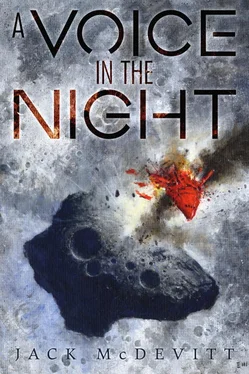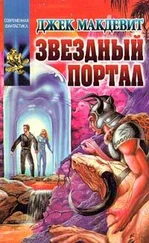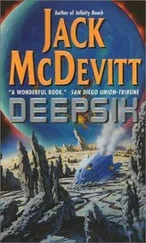“Yes.” Annas jabbed an index finger at him. “And what have you been telling the faithful?”
The place felt closed in. Smoky. He would have preferred the cold night air. “Surely,” he said, “you know what I have been saying. Otherwise I would not be here.”
One of the servants raised a staff and came after him. Jesus turned slightly to take the blow on his shoulder, but in doing so he lost his balance. It caught him as he went down, and he landed clumsily on a stone step. “Don’t take that tone with the chief priest,” his assailant warned. He lifted the rod to hit him again, but Annas smiled in what he must have thought was a kindly manner, and directed the assailant to stop. They dragged him back onto his feet.
“Let me ask you again,” said Annas. “What is your purpose? Why do you defy the scriptures?”
“By what right,” asked Jesus, “do you question me?”
That brought a second blow. He went down again, and laughter broke out around him. There were shouts, and a commanding voice: “That’s enough.” Guards, led by an officer, pushed their way forward through the crowd. One of them shoved the servant away. “Do not hit him again,” said the officer.
Annas glared at the officer. “Your authority ends at the door, sir.”
The officer climbed onto the platform. “My authority extends wherever citizens are abused.” He signaled his men to help Jesus to his feet. They took him in charge.
Jesus looked around in confusion. The Romans were helping him? This wasn’t the way it was supposed to go.
They led him through the crowd, out of the chamber, and out of the temple.
The moon was still high in the sky. He glanced up at it.
What’s going on? But it was okay. He wasn’t inclined to protest.
They released him from his bonds, but warned him not to flee. Then they marched him through the streets. “Where are you taking me?” he asked.
“Just walk,” said the officer.
They turned toward the Roman barracks. That meant Pilate.
The procurator customarily made his headquarters at the palace of Herod at Caesarea. But he usually attended the annual festivities in Jerusalem.
The grounds were deserted. The night had turned cold. Jesus did not even see the sentries who routinely guarded the place.
They took him inside, led him to an outer room, told him to wait, posted a guard, and closed the door. But it was not uncomfortable. A fire took the chill away, and there was a bench for him to get off his feet. It had already been a long night.
He rubbed his shoulder, which ached from the blow of the staff. He’d also bruised his ribs when he fell. Occasionally, he heard footsteps passing back and forth outside.
And he waited.
Eventually, the door opened, and the officer signaled him to follow. “The Proxenos will see you, prisoner. See that you behave.”
The Proxenos? It was a rank Jesus was not familiar with.
He was led down a long corridor, past several empty rooms. They turned a corner and passed through a door into the presence of a tall, dark-haired man with sharply-etched features and the manner of an aristocrat. It was a sparsely-furnished chamber, warmed by a fire. Although austere, by the standards of the barrack building, it felt almost luxurious. Its lone occupant glanced briefly at the escort. He paid no attention whatever to Jesus.
He sat on a carved wooden chair. The walls were wooden but were, for the most part, covered with thick woven drapes. A statue of Apollo stood on a side table.
“My Lord Dimonides,” said the escort, “this is the prisoner.”
“Very good, Lohagos. Thank you.”
Lohagos was, what? Greek for captain. Jesus felt a flicker of hope. Maybe he was going to get clear of this after all.
Two guards entered and positioned themselves on either side of the Proxenos. The captain closed the door against the draft and stood directly behind Jesus.
It was clear that Dimonides was annoyed. The hour was late and he had better things to do than trifle with another of these religious fanatics. What engaged his attention, Jesus saw, was the three women who were, even at that moment, descending into his private quarters.
But the Proxenos was what would in the distant future be described as an ‘A’ personality. He could not shut down operations for the day and leave an unpleasant task for the morning. Especially when the unpleasant task might include an angry visit from the priests.
“I’ve already heard from the authorities,” he said, still gazing off into the distance somewhere. Jesus understood he was talking about Annas. And Caiphas. They’d be unhappy at the manner in which the soldiers had snatched him away from them. “They’ll be here in the morning to demand that I impose fitting punishment.” Finally, his eyes turned toward his prisoner. “You look harmless enough,” he said. “What did you do to get all those people so upset?”
Jesus smiled. He liked Dimonides. “I challenged their religious views.”
“Ah, yes. Of course.”
“May I ask, where is Pilate?”
“Pilate?” Dimonides exchanged glances with the captain. “Who is Pilate?”
“He’s the man in charge.”
“Really? We know of no one by that name.”
“Indeed,” said Jesus. A wave of exhilaration rose in him. Thank you, Father. “I must have been mistaken.”
Dimonides pressed an index finger against his lips. “I suspect,” he said, “what you really did was challenge their authority.”
“You could put it that way.”
“Yes. I just did.” He glanced over at Apollo. The god stood mute. It was a striking piece of work. “It’s always disconcerting,” he said, “when one must deal with people who take their religion too seriously.”
“I suppose it is,” said Jesus.
“You’ve gone about publicly, I understand, and told all sorts of people that Annas and Caiphas don’t know what they’re talking about.”
“That is so,” said Jesus. “They are misinformed.”
“Of course they are. But that’s hardly relevant. The problem lies in the fact you don’t recognize your own fallibility.”
“No doubt.”
“But that’s neither here nor there either. We’re not concerned about theological niceties tonight. We’re talking about keeping the peace.”
Jesus nodded. “May I ask a question, Proxinos?”
“Yes, you may. As long as it is not religious in nature.”
“Of course. How long have the Greeks been in Jerusalem?”
“What are we talking about, Prisoner?”
“How long have you controled this area?”
He frowned. How could the prisoner not know? “About sixty years.”
“Sixty years?”
“More or less.”
Jesus could not restrain a broad smile. “Actium,” he said.
Dimonides frowned. “I beg your pardon?”
“Antony won at Actium, didn’t he?”
“Of course.” Dimonides looked baffled. “What are we talking about?”
“And the Greeks don’t do crucifixions.”
“Crucifixions? Of course not. We try not to execute anyone.”
“Very good. A humane policy.”
Dimonides laughed. “We are gratified that you approve.” His gaze tracked inward, and the hint of mockery went away. “We’ve executed probably fewer than twenty people over the last four hundred years. But one of them turned out to be Socrates.”
“I know.”
“It hasn’t helped our reputation.”
They stood silently for several seconds. Jesus heard voices in the corridor. Then everything was silent again save for the crackle of the fire.
Читать дальше










